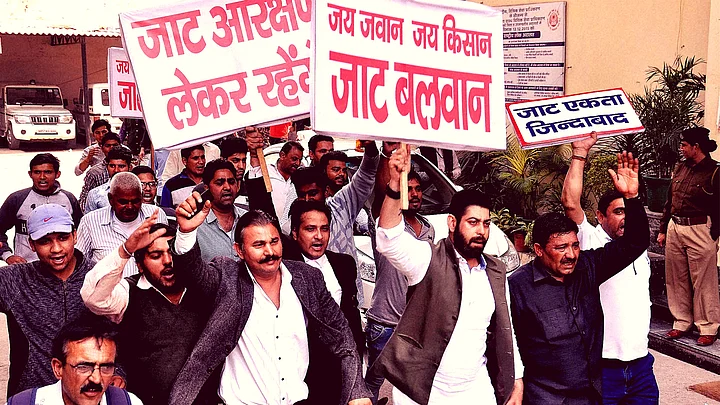Jats constitute 30% of the population in Haryana. Of the 90 constituencies in the Haryana assembly, almost one-third are occupied by Jats. Nine of the twelve Chief Ministers in the state’s 50-year existence have been Jats.
And yet, this politically influential community that was rejected not once, but twice by the National Commission for Backward Classes, is on the warpath for reservation. Again.
Rejected for Being Too ‘Forward’
Economic grievances in India have continued to be coded in caste since 1991 when the VP Singh government implemented the contentious Mandal Commission report. It set aside 27% reservation for Other Backward Classes (OBC) identified by social, educational and economic indices.
The Jats did not make the cut.
On 28 November 1997 the National Commission for Backward Classes submitted a report after studying several requests from individuals, organizations and associations for the inclusion of Jats in the list of backward classes for the states of Haryana, Rajasthan, Madhya Pradesh and Uttar Pradesh.
Again, the Jats in Haryana did not make the cut.
The National Commission for Backward Classes recommended the inclusion in the Central list only of the Jats of Rajasthan, barring the Bharatpur and Dhaulapur districts.
In 2002, under pressure from Jats in as many as six states, the National Commission for Backward Classes conducted a survey to review the status of the community. It ascertained the socio-economic status of the Jat community in Uttar Pradesh, Madhya Pradesh, Rajasthan, Himachal Pradesh, Gujarat and Haryana and reported that they were, in fact, a forward community.
Congress’ Walk Up a Slippery Slope
In March 2014, just ahead of the General Election, the UPA granted OBC status to Jats in nine states including Haryana.
This was despite a report submitted by the National Commission for Backward Classes just a few days earlier.
On 26 February 2014 the National Commission for Backward Classes observed that Jats could not be conferred the backward status merely by belonging to an agricultural community.
The NCBC found that the Jats were not socially nor educationally backward and rejected the claim of inadequate representation in public employment, finding them adequately represented in armed forces, government forces and educational institutions.
The Union Cabinet contended that this advice did not take into account the “ground realities” and issued the notification on 4 March 2014.
Importantly, the National Commission for Backward Classes suggested the need for non-caste based identification of backward classes.
Transgenders More Distressed Than Jats
The suggestion was echoed in the Supreme Court’s observations when it struck down the notification in March 2015. Contending that politically strong groups like the Jats cannot be counted as one among the Other Backward Classes, the Supreme Court directed the Modi government to recognize other socially and educationally backward groups like the transgenders who are more distressed.
- Mob sets fire to Budha Khera railway station in Jind, Haryana.
- Seven dead, 78 injured in the violence since Friday.
- Roadway and railway services suspended. Schools shut until further notice.
- Army deployed in nine agitation-hit districts of Haryana. 3,300 paramilitary personnel have been deployed.
- Curfew imposed in Sonepat, Jhajjar, Bhiwani and Rohtak.
- Stones pelted at BJP MP Raj Kumar Saini’s residence in Kaithal.
- Internet and SMS services blocked in the affected districts.
- Thousands of trucks, carrying supplies and goods, stranded in affected districts.
Jat protestors block roads in Gurgaon; police detain some protesters.
First Real Test for Non-Jat Chief Minister
As a non-Jat Chief Minister of the first BJP government in the state, ML Khattar is facing his first real test.
His only offer to the protesting Jats so far, has been to include them in the Economically Backward Classes and double the reservation that was promised by his predecessor Bhupinder Singh Hooda, to 20%.
The Jats have rejected this offer for two reasons. One, they are unwilling to settle for state-level jobs and are eying a share in the 27% reservation in Central government educational institutes and jobs.
Two, the very same proposal was deemed null and void by the Punjab and Haryana High Court in July 2015 after the Supreme Court struck down OBC status for Jats.
(At The Quint, we question everything. Play an active role in shaping our journalism by becoming a member today.)
